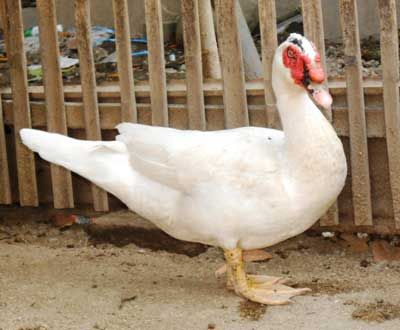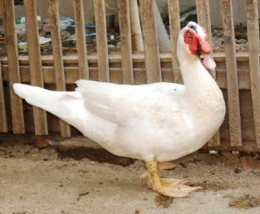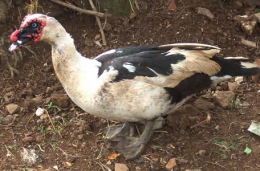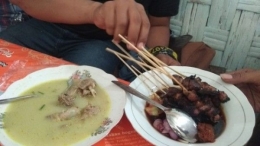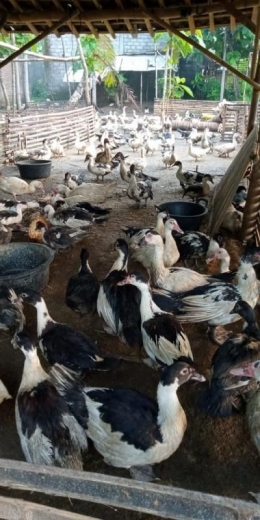MENTOK-itik serati, itik surati, itik manila, entog or mentok (Cairina moschata) is a type of bird or poultry belonging to the duck family that is kept for meat and its eggs. The term of mentok comes from Javanese, in English it is called Muscovy Duck or Barbary Duck.
This domestic hump comes from Mexico, Central America, and South America, where populations of this bird species live naturally and wild in forested swamps and marshy areas around the lake and river, including downstream of the Rio Grande River basin in Texas. In Indonesia, these poultry are completely domesticated animals raised for their meat.
Mentok has a variety of sizes, weights, and colors. Wild males can reach 85 centimeters, from tip of beak to tip of tail, and can weigh up to 3 kilograms. Female mentok is usually smaller, which is about 64 cm and 1.3 kilograms. Domestic humps are usually fatter, with males reaching 7 kilograms and females up to 5 kilograms.

Even though they can fly, mentok almost never fly very far. These birds are often seen walking with their groups, slowly and never in a hurry, with their tails swaying to the right and left to balance the body so that it seems funny.
Clogged pets usually sleep on the ground, mentok also rarely are locked up. Mentok is left free to roam around looking for his own food, especially around waterways, rivers and rice fields. Mentok eating various snails, worms, water insects, small yuyu, and plant shoots.
Female mentok can lay up to 10 eggs which are then incubated for about 5 weeks.
Mentok meat is very popular with people, especially rural communities. This is because it has a strong taste and does not smell like laying duck meat. There are various kinds of mentok meat dishes, such as grilled mentok, sweeke mentok, pedesan entog, satay and gule mentok, and many more.


Not only that, apart from being a farm animal, mentok can also be a pet to get rid of overcoming boredom and loneliness, and relieving stress with its cute shape and gestures. It can be concluded that mentok has an important role in human life, from being processed food, a source of income to relieving boredom, loneliness, and stress.




